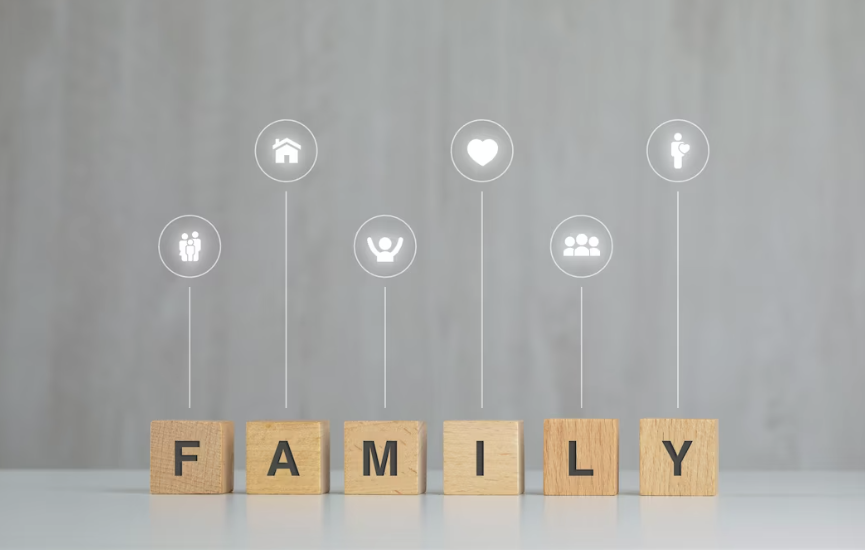M1 Life Navigator
This module serves as an introduction to the vocation of Life Navigator. A concept of help that goes beyond the therapy room, Life Navigators seek to impact their clients’ lives by providing a much closer level of support to address problem issues at the very root. Students will be exposed to the parameters, standards and expectations of this role and will be equipped with the required listening and analytical skills.
M2 Family of Origin
An individual’s family of origin is of enormous importance. Since parenting shapes a child’s core beliefs about himself or herself, each family’s beliefs about what it means to be human and the purpose of life will have a tremendous influence of what each individual learns and develop. These beliefs will, in turn, form decisions and choices made as well as influence relationships developed. Aside from values, an individual’s childhood experience on their needs and wants also forms the basis for their motivations. These beliefs, rules and values within families are passed down from one generation to the next, perpetuating a healthy or unhealthy family of origin.
Students will be exposed to the concept of family of origin and will be guided to explore their own families of origin.
M3 Relationship Conflict Management
Conflict management is the process by which disputes are managed, where negative results are minimised and positive results are prioritised. In the case of relationship conflict management within the context of a family, the positive results sought are strengthening of the marital and/or parent-child relationships. Students will be exposed to the 5 most common conflict management styles as well as research literature pertaining to various fields of conflict management.
M4 Dynamics of Marital Relationships
The word dynamics pertains to ‘the pattern or history of growth, change, and development’. Within the context of marital relationships, students will explore the patterns created between couples and their origins. Students will also be exposed to detailed analysis on how a marital relationship formed by two individuals with their own beliefs, values, biases, hurts and influences can play out. Common dynamics such as coping with a partner’s style, habits, addictions, and even infidelity will also be covered. This module aims to educate students on how dysfunctiuonal dynamics like infidelity can be dealt with by starting and engaging with new positive cycles of forgiveness and recovery.
M5 7 Stages of Life Healing
Every individual carries an amalgation of hurt and emotional injury, which in turn has a significant influence on each person’s mindset, motivations, beliefs, values and behaviour. In order to stop the cycle where pain perpetuates more pain, we first have to attend to the source of that pain. The 7 Stages of Life Healing provides students with a systematic way by which to initiate the process of recovery, both for themselves and their clients.
M6 True Love
What is ‘True Love’ in parenting? Indulging the child, satisfying not just needs but extravagant wants that parents can barely afford? Being permissive, allowing the child to do anything he/she wants with no boundaries? Shielding the delinquent child from discipline instead of letting him learn to take on responsibilities? What about if you, the parent, who make sacrifices for your children whom you truly love, yet they do not appreciate what you have done and also defy you badly breaking your heart again and again? Are you able to still love them unconditionally?
M7 Human Development
This module brings students along the path of human psychosocial development and developmental psychology to understand how, when and why human beings change over the course of their lives. Students will be introduced to examine changes across 3 major dimensions: physical, cognitive and social emotional development.
M8 Principles of HuiRu Value-Life Education
Students will learn the fundamentals behind the 8 Principles of HuiRu Value-Life education and understand the significance they have on one’s development. Common pitfalls parents tend to get into will be highlighted together with how to overcome these challenges. Importantly, students will practise their learning by converting their knowledge into real life application for more effective parenting.
M9 Fundamentals of Marriage
Students will be exposed to 12 relationship categories that play a critical role in determining overall marriage satisfaction. Essential skills and common obstacles to a healthy marriage will also be explored.
M10 Fundamentals of Parenting
This module enables students to arrive at the definition of parenting as well as its objectives. They will explore how the concept of parenting has changed over time and between cultures, as well as examine the concept of parenting in this modern era. Parenting categories such as discipline, building resilience and instilling life values will also be covered.


